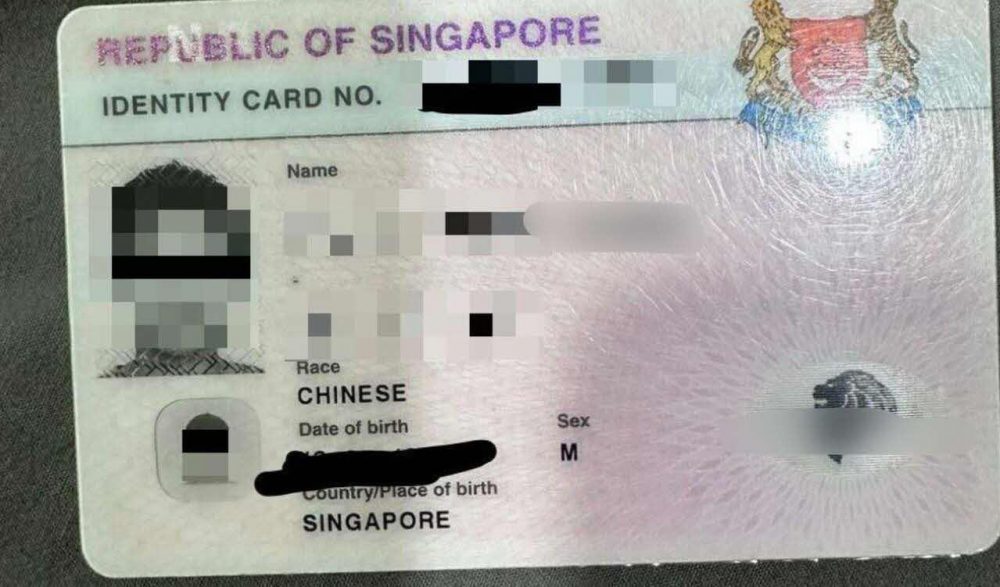S’poreans keep getting scammed over the internet, especially young adults
“I don’t trust nobody and nobody trusts me.”

In 2023, Roo, a Singaporean woman, was scammed out of hundreds of dollars.
Her Achilles heel? She was caught up in the Bejeweled allure of Taylor Swift’s “The Eras Tour”, which was headed Singapore’s way.
Roo was not alone.
There were others who were trying their best to catch the show – and who also got scammed.
In fact, each year, Singaporeans lose millions of dollars to e-commerce scams.
Yes, even young Singaporeans, who grew up with the internet and consider themselves digital natives.
Digital natives not exempt from e-commerce scams
But the internet isn’t new to Roo.
She’s a digital native born in 2003.
She’s a Gen Z girlie who thought she could navigate the tricks of e-scammers.
After all, she grew up online.
The problem is that scammers know All Too Well how to exploit the emotions of young, chronically online people.
So, how do we protect ourselves?
“Enchanted” by a deal
In September 2023, Roo saw a post in the Telegram group, “NTU Marketplace”.
A user, who went by “A”, was selling two category 1 tickets to “The Eras Tour” at a negotiable price.
Roo messaged them.
Roo thought she was getting a bargain – two tickets for S$750 – only a small mark-up from the original price.
 Images from Roo.
Images from Roo.
Having heard many stories about people being scammed on online marketplaces, she was cautious and asked for a photo of A’s NRIC card, which they sent through.
 Image from Roo.
Image from Roo.
It wasn’t until after she had transferred the money, without thinking too deeply, that a thought crossed her mind: What if the NRIC didn’t belong to A?
So, she googled the name on the card.
It belonged to a person who had been convicted for rape.
Roo said:
“There was this thought that ‘yeah, I had been scammed’, but there was also a small part of me that thought ‘oh, maybe he just turned over a new leaf’, choosing to be a bit naive.”
But a few days later, when she faked a sob-story and tried asking for her money back— only to be told by A that it had already been spent— Roo lost her naivety.
She said she was “pretty devastated”.
The university student lost S$750 and didn’t get to see Taylor Swift in March 2024.
At the same time, though, she was grateful it wasn’t more money that she had lost.
“I was just really glad I wasn’t one of these people who, like, flew into the country and realised that the tickets were fake because that was, that would be, like, really, really devastating.”
Scamming a thriving industry in Singapore
Between January and June 2024, Singaporeans lost at least S$385.6 million to scammers, an increase of almost 25 per cent from the same period in 2023.
Of the 26,587 scams, e-commerce scams on online marketplaces — like that experienced by Roo — recorded the highest number of cases of all scam types, amounting to at least S$8.6 million lost.
Concert tickets were the most common item involved and at least 1,113 of the scams happened on Telegram.
 Image from Singapore Police Force’s Mid-Year Scams and Cybercrime Brief 2024. The top digital platforms used in e-commerce scams.
Image from Singapore Police Force’s Mid-Year Scams and Cybercrime Brief 2024. The top digital platforms used in e-commerce scams.
Assistant Commissioner of Police Aileen Yap told The Straits Times in March 2024 that at least 960 people had been scammed online, whilst attempting to purchase tickets to Taylor Swift’s tour.
Between Jan. 1 and Mar. 12, 2024, more than S$538,000 was reported lost to scams relating to the billionaire pop star’s tour.
Most victims were women under the age of 30.
Roo isn’t surprised.
She said, in hindsight, she thinks people who have grown up on the internet have become complacent.
“You know how to, like, navigate the Internet, but… scammers prey on, like, emotions, and prey on, like, desperation… You don't really think that it would happen to you.”
SPF’s recently revamped website and app, ScamShield, is hoping to help Singaporeans, like Roo, safeguard themselves against all types of scams.
How to ACT to protect yourself
The Singapore Police Force has come up with a few key steps to protect yourself from falling victim to a scam: Always remember to ACT (Add, Check, Tell).
 Image: ScamShield Suite.
Image: ScamShield Suite.
The ACT framework, first launched in 2023, provides three actions to up your defences against scams.
- ADD the ScamShield app
Installing the ScamShield app on your mobile devices is a great first step. The app has features which help you determine if something is a scam, block scam calls, detect scam SMSes. You can also conveniently report any scam encounters on the app!
Think of it as a one-stop shop for all things scam-related.
In addition, you can also follow the ScamShield Alert Social channels on their social media platforms to be alerted about the latest trends and information about scams.
- CHECK for scam signs with official sources
If you are contacted by an organisation or government agency asking for money or information, it’s best to independently verify the information by contacting the organisation, or government agency directly, using their official contact details.
And, if you are unsure whether something is a scam, call the 24/7 ScamShield Helpline at 1799 to check.
- TELL authorities, family, and friends about scams
If you believe you have fallen victim to a scam, you should immediately contact your bank and make a police report.
You can also share your scam encounter via the ScamShield app, and warn your friends and family about it.
More than 12 months on from her scam, Roo said she’s still embarrassed by what happened and that her online habits have changed.
“I've become a lot more, like, cautious about buying things through the Internet. Like, nowadays, I really, really don't buy things, especially through, like, telegram groups… I feel like if I didn't get the concert ticket through Ticketmaster, I would just probably not go around and find tickets anymore.”
Apart from using official channels to buy tickets, you can also reduce the risk of getting scammed by using e-commerce platforms that receive good Transaction Safety Ratings.
Whilst taking steps to ACT (Add, Check, Tell) will increase your resilience, it’s also important to remember you are the first line of defence and must remain vigilant online. Just like Roo now.
As Taylor Swift sang, “I don’t trust nobody and nobody trusts me”.
This sponsored article by the Singapore Police Force helped the writer learn no one is immune to scams and the best way to prevent them is to ACT (Add, Check, Tell).
MORE STORIES



















